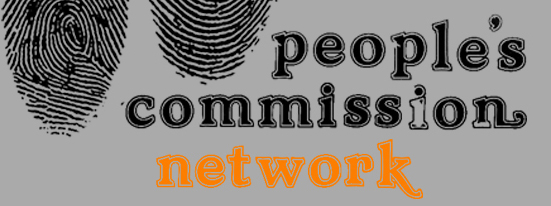People's Commission on Immigration and "Security" Measures
Why a popular commission?
Why a Popular Commission?
Security measures in the immigration regime have emerged as a battlefront in the fight for equal treatment of migrants in Canada, and the fight against measures being introduced under the banner of the "war on terror". As increasing numbers of people worldwide are forced to leave their homes in search of minimal security, dignity and opportunity elsewhere, governments in North America have responded with new measures which exclude or marginalise the most vulnerable of those who arrive on these stolen shores. Domestic policies aimed at creating a "fortress North America" work hand-in-hand with newly aggressive external policies promoted as the "war against terror". Security measures in the Canadian Immigration and Refugee Protection Act (2002) — measures which deny the most basic of human rights in the name of an ill-defined "national security" — act in many ways as the flagship of this political trend.
A campaign spearheaded by the family members of security certificate detainees has successfully ensured that the issue can no longer be ignored by the public, the media and politicians. Grassroots mobilisations are now widespread — several national days of action, a seven-day No one is illegal march from Montreal to Ottawa,and diverse ongoing actions from individuals and networks have challenged the security certificate. Human rights organisations in Canada and the US,immigrant and refugee organisations, members of the Parliament, and the legal community as well as several UN bodies have at last begun to speak out about the issue.
The law is now under review in a Parliamentary subcommittee, and will be tested in the Supreme Court on June 13-14 2006. In the current political climate, it is essential that public attention to the issue and popular pressure remain high as these two formal processes unfold. Moreover, the nature of these review processes make it unlikely that the voices of those who are most affected by the abuses of the immigration system will be audible in either the Parliamentary review or Court proceedings. A popular commission with the aim of putting the spotlight on the abuses and providing those who are closest to the ground a vehicle for suggesting changes will be timely and important.

The People's Commission Network is a working group of QPIRG-Concordia qpirgconcordia.org 514.848.7585 info@qpirgconcordia.org

Contact the People's Commission Network: QPIRG Concordia - Peoples's Commission Network c/o Concordia University 1455 de Maisonneuve Ouest Montreal, QC, H3G 1M8 commissionpopulaire@gmail.com
This website is based on the Fluid 960 Grid System




